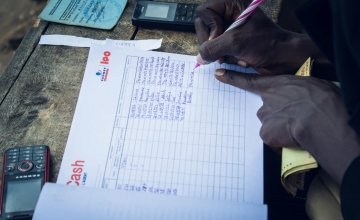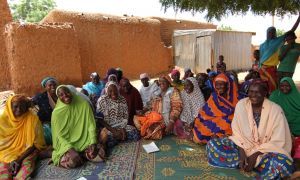
Read our 2024 annual report

Knowledge Hub
The impact of an emergency cash transfer programme in Niger
This study presents the findings from a quasi-experimental longitudinal study of a conditional emergency cash transfer programme implemented by Concern Worldwide in 2012 during a food crisis in Tahoua, Niger.

The study found that this emergency cash transfer programme promoted child weight gain and reduced the risk of acute malnutrition among children in the context of a food crisis. The authors suspect that the use of strategic conditional terms and a valuable transfer size were key features in achieving this result. Future studies of this nature would benefit from pre-baseline measurements, more exhaustive data collection on household characteristics and transfer use, and further investigation into the use of conditional terms in emergency settings.
This document covers humanitarian aid activities implemented with the financial assistance of the European Union. The views expressed herein should not be taken, in any way, to reflect the official opinion of the European Union, and the European Commission is not responsible for any use that may be made of the information it contains.




